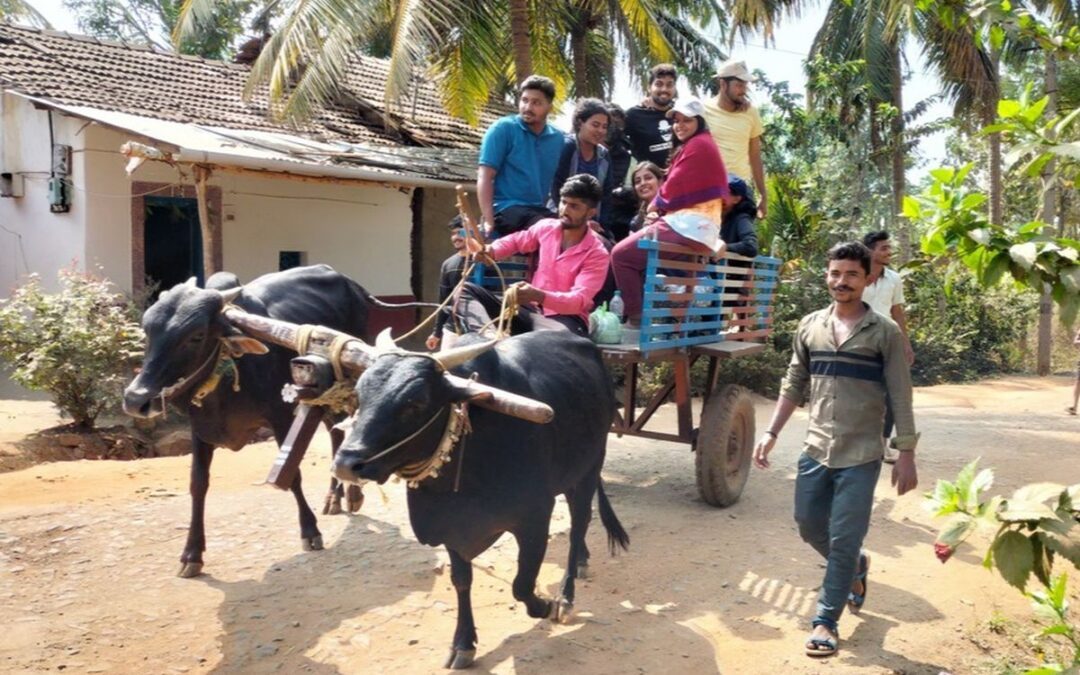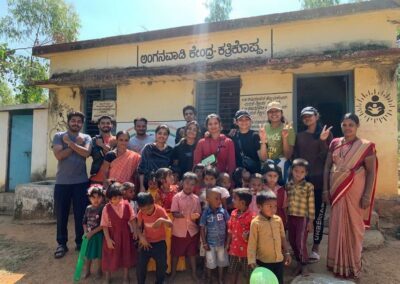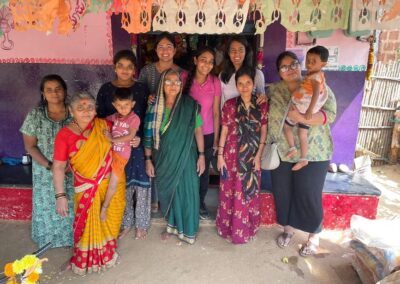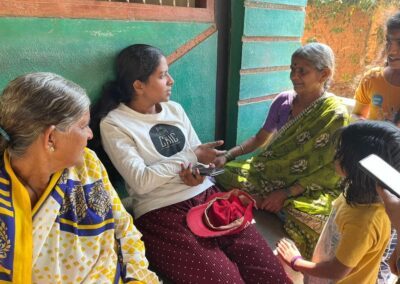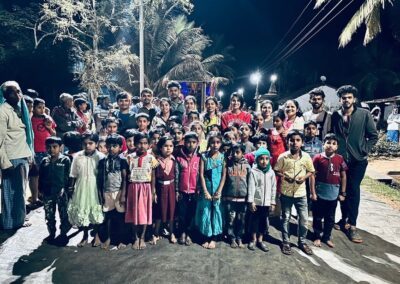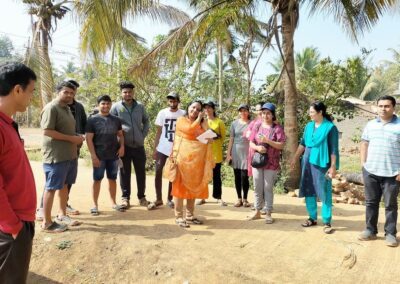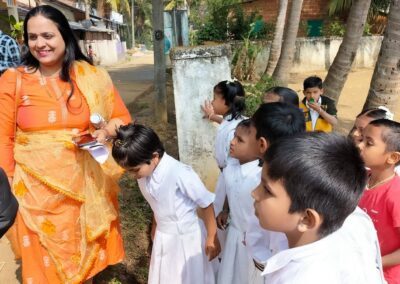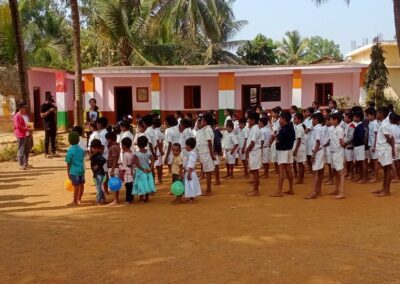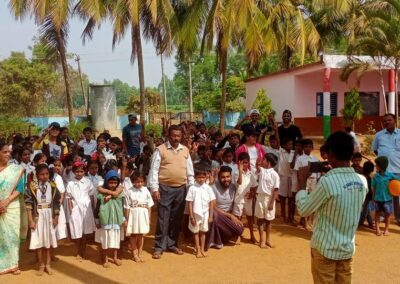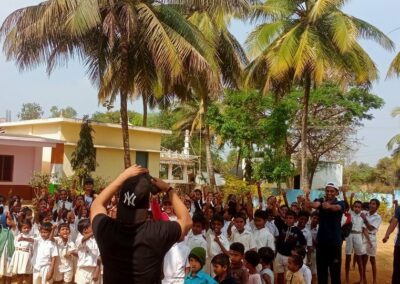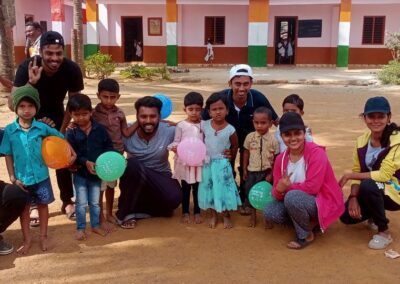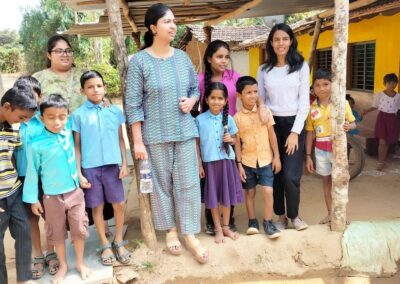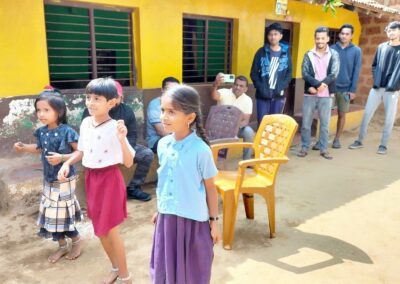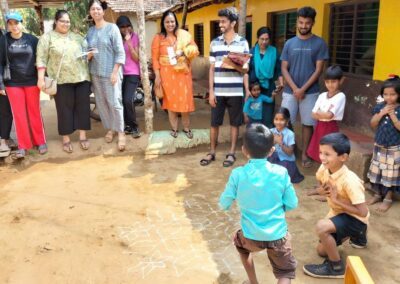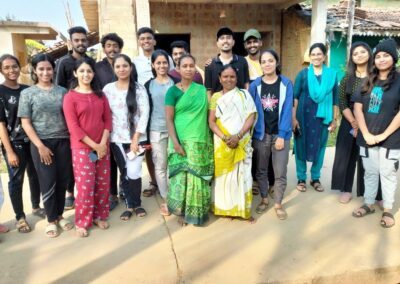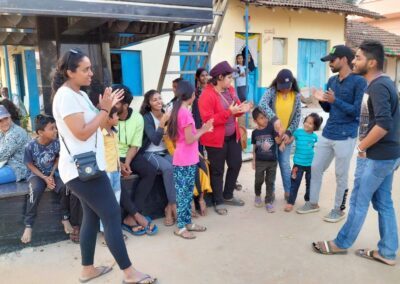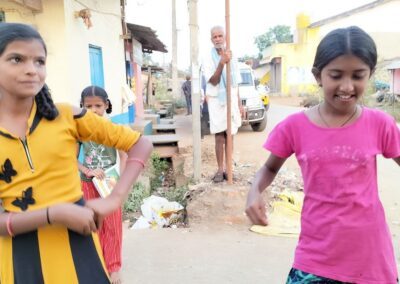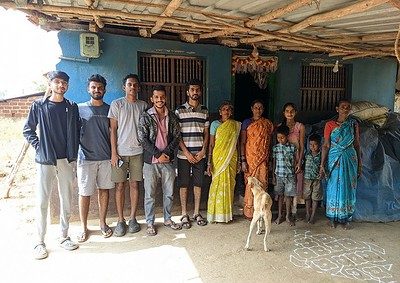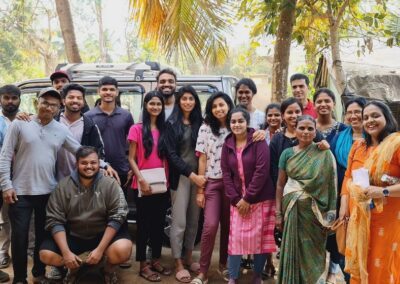The students were divided into batches and were sent to Mundgod and Hangal. All the students were dispersed mentor wise in the areas around Mundgod and Hangal with twelve to fourteen students in each village and two in a house. They did the daily chores of houses and the fields. All the groups gave tuitions in schools and conducted games for the children. Some groups even organised cultural programmes with a social message for the villagers.
The peak moment for many groups was that they were successful in enrolling students to school. The general tendency of the people was to send their children to fields after they turned twelve, but the students were successful to change the minds of a few villagers.
The students look back on the four days they spent in a little town as some of their most treasured memories. The locals’ simple way of life taught the students lessons that the city could not. One of the many things ingested throughout this exposure camp was simplicity. The students also learned humility, selflessness, and compassion for one another. Students spent days involved in daily observation and survey research tasks such as field work and village visits.
All the students visited the anganawadis and schools and interacted with the kids, with songs and games.The kids were entertained.The students also gave a visit to the panchayaths of each village and addressed them with the issues that they found in the village and made an attempt to bring light on these issues.
“Rural exposure camp has taught me a lot. The way people stayed happy even staying poor can’t be expressed in words. We always tend to cry about the things that we don’t have, instead of making use of things that we do. Being happy and self-contended with everything is most essential,” said Umer Farooq, a student of II MBA.
“We enjoyed a lot in the villages. Our initial expectation was a bit scary as we had no clue how our stay would be over there. But the experiences we had would be cherished for the rest of our lives,” said Anusha Mary, another student.
“The villagers followed the principle of Athithi Devo Bhava. Even with the little resources they had, we were taken care of well by them. Many of our students had the language barrier, but the villagers were happy with us as no people visit them and their smiles said it all,” said Roshan Issac.
Dr (Fr) Melwyn Pinto SJ, Director of AIMIT said, “Every year we send our students to the rural areas to experience the frugal and simple lives of our village folk. It is a unique experience to our students which they will remember for the rest of their lives. And I am sure that, at least some of them, would think of the management research and problem-solving exercises done as part of research component of the rural immersion experience newly introduced this year and do something for the development of the villages.”


 Ranked 58th
Ranked 58th